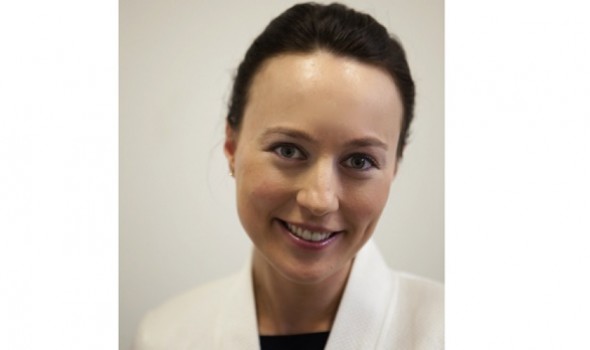Paulina Polak sees job problems - and offers answers
Paulina Polak sees job problems - and offers answers

Why do so many female migrants find it so hard to get the good jobs for which they are qualified?
Paulina Polak – herself a migrant from Poland, via Germany – has been thinking about the problem for years, and she thinks she has the answer.
“It’s about being able to sell yourself – to prospective employers, in life, to the world,” she says
She also decided that knowing the explanation was not enough and that she had to act to put the situation right, by setting up an organisation, Onpartu, to help women get better jobs.
The idea came when Polak was working her way through university here, doing jobs in shops, restaurants, bars, and handing out flyers. Many of her fellow workers were migrants.
“I liked working with migrants. Everyone has so much to tell and you can learn so much from their stories, their culture, and speaking a foreign language,” she recalls.
“What started to stand out is that a lot of the people I was working with were highly qualified. I was really surprised and curious about why they didn't make it. I was worried: was this my future as well?”
Her fears proved unfounded, so she has been wondering why she was able to make the switch to higher-paid jobs while someof her former co-workers have not.
Migrants face a variety of problems, but migrant women have an extra layer of problems to deal with. “I worked in investment banking and in real estate, fields dominated by men. Figures speak for themselves in terms of income and how many years it would take to bring [men’s and women’s salaries] to an equal level.”
Polak realised that many of the women are not good at making it clear to prospective employers and recruiters that the university they had attended in their home country was top-ranked and they had topped their class. In addition, their CVs do not do justice to their education and experience – a shortcoming Polak says is shared by UK graduates: it’s a skill she says is not taught properly.
Also, migrant women lacked the social networks created in this country by fee-paying schools and shared university experience.
The barriers holding back migrant women damage the whole of society. “Think of the value that migrant women bring. If you want to prosper and go further, you need to address the needs of the society in which you operate. We live in a multicultural society and companies need to be able to represent it internally in order to represent customers externally and also to build relations with countries that are strategic partners of the UK,” she says.
“So why wouldn't you be supportive of the growth and progression of the individuals who can create more jobs here and back home and make a large financial contribution as well?”
She continues the same line of argument to counter the idea that migrants are a drain on the economy.
“We know that is not the case,” she insists. “Fundamentally, the problem we have is that a lot of low-skilled jobs are taken by high-skilled people. The moment you unblock that and move people one level up, they start to contribute more and they take less.”
Migrants are not taking jobs, she points out.
“No we're not. It’s about job creation. If a job is created for someone who speaks Polish or Romanian you are not taking someone else's job. In hospitality and dealing with tourism there is a huge need for people who speak [different] languages. And the UK does not have language learning at an early age.
“We are actually allowing these companies to grow and move forwards, create more opportunities and contribute more financially through taxation.”
Getting back to the work of Onpartu, she says language is less of a barrier than the women believe, but that their confidence needs boosting: “Onpartu helps focus on what you are good at, not what you are not good at.” One way of doing this is involving psychologists and coaches as well as experts in women's progression in the workplace.
“We don't think confidence is something you simply deliver. You can build up your confidence if you have numerous small ‘wins’. So the programme is designed to boost confidence through numerous small steps rather than one life-changing moment.”
The company has about 40 trainers, mentors and inspirational speakers on hand. “The latter are other migrants who are professionals based in London who have inspiring stories you would not hear otherwise - an individual who made it from a construction site to being a partner in a No.1 architectural company, a woman who used to work as a cleaner and now manages millions of pounds for a top fund. These stories are breaking many barriers.”
Mentors act not just as role-models but also as 'critical friends' providing feedback on writing CVs, helping the women practise for interviews, and pushing and inspiring them.
“It is not a programme by women for women,” she emphasises.“We have many male mentors. This is what you have in the workplace.”
Already some of the women who have completed Onpartu's programme have set up their own businesses: “It takes a lot of confidence and courage to do that. It's amazing.”
All Onpartu’s work so far has been on a voluntary basis, but Polak wants to devote herself to the project on a full-time basis and says she hopes it will work with 500 women in the next five years.
But it’s not all work for the tireless Polak. She likes to travel and as well as planning several trips this year (“South Africa and Morocco and then we’ll see…”) she also enjoys various sports, yoga and meditation – and “along the way I’m getting married”.


